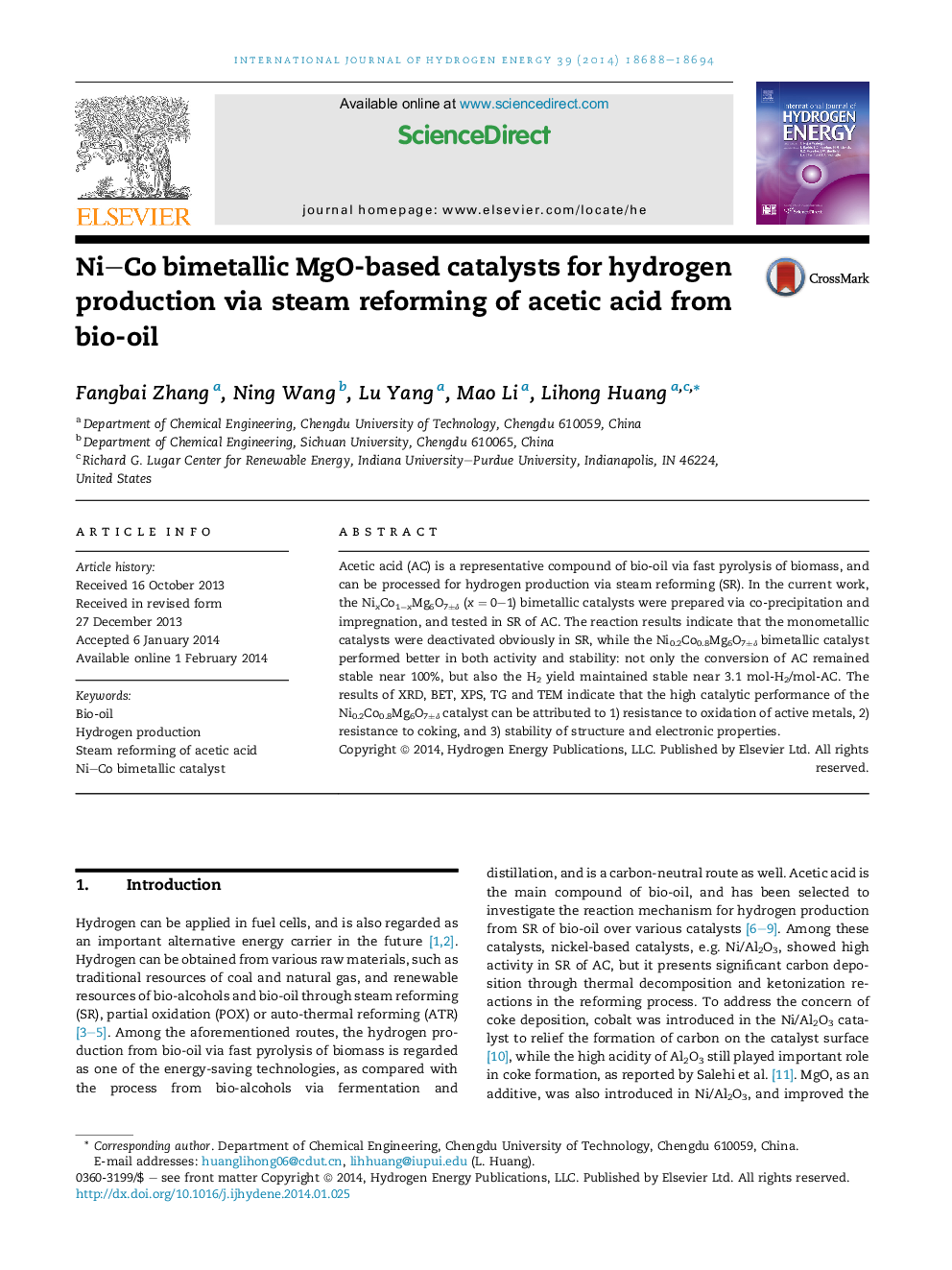| Article ID | Journal | Published Year | Pages | File Type |
|---|---|---|---|---|
| 1280883 | International Journal of Hydrogen Energy | 2014 | 7 Pages |
•The Ni0.2Co0.8Mg6O7±δ catalyst performed better in both activity and stability in SR.•A mixed oxide or solid solution of cubic phase Mg(Ni, Co)O formed after calcination.•Stability of structure and electronic properties was found.•Resistance to both oxidation of active metals and carbon deposition was observed.
Acetic acid (AC) is a representative compound of bio-oil via fast pyrolysis of biomass, and can be processed for hydrogen production via steam reforming (SR). In the current work, the NixCo1−xMg6O7±δ (x = 0–1) bimetallic catalysts were prepared via co-precipitation and impregnation, and tested in SR of AC. The reaction results indicate that the monometallic catalysts were deactivated obviously in SR, while the Ni0.2Co0.8Mg6O7±δ bimetallic catalyst performed better in both activity and stability: not only the conversion of AC remained stable near 100%, but also the H2 yield maintained stable near 3.1 mol-H2/mol-AC. The results of XRD, BET, XPS, TG and TEM indicate that the high catalytic performance of the Ni0.2Co0.8Mg6O7±δ catalyst can be attributed to 1) resistance to oxidation of active metals, 2) resistance to coking, and 3) stability of structure and electronic properties.
